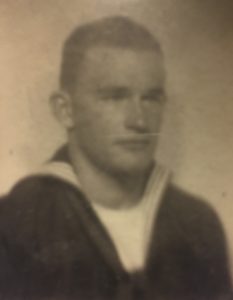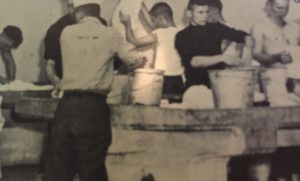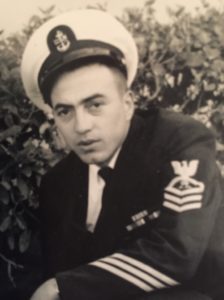When I woke up I couldn’t swallow.
I was in Navy boot camp in San Diego so there was no staying in bed. I got up, dressed, mustered with my shipmates and marched to chow even though I couldn’t couldn’t eat or drink. The order I was waiting for came after breakfast but, thankfully, before calisthenics: “Sick, lame or lazy, fall out!”
I fell out.

In boot camp no sympathy is wasted on sick sailors, some of whom, those in charge firmly believe, are not sick at all, just lazy.
I marched to the spot reserved for sailors who said they were sick [or lame or lazy] and stood at parade rest for more than an hour before Navy corpsman put a thermometer in my mouth.
When he took it out, and looked at it, he called an ambulance and they took me away. I stayed in sick bay –the hospital — for seven days, getting penicillin shots in my bottom.
Postscript: Normally, because I had been in sick bay for a week, the Navy would have sent me to a new company, a week behind mine, so I wouldn’t miss any training. Lucky for me my company was assigned to KP that week, so the only thing I missed was my turn washing dishes.
Coming Friday: You Want Ugly?

